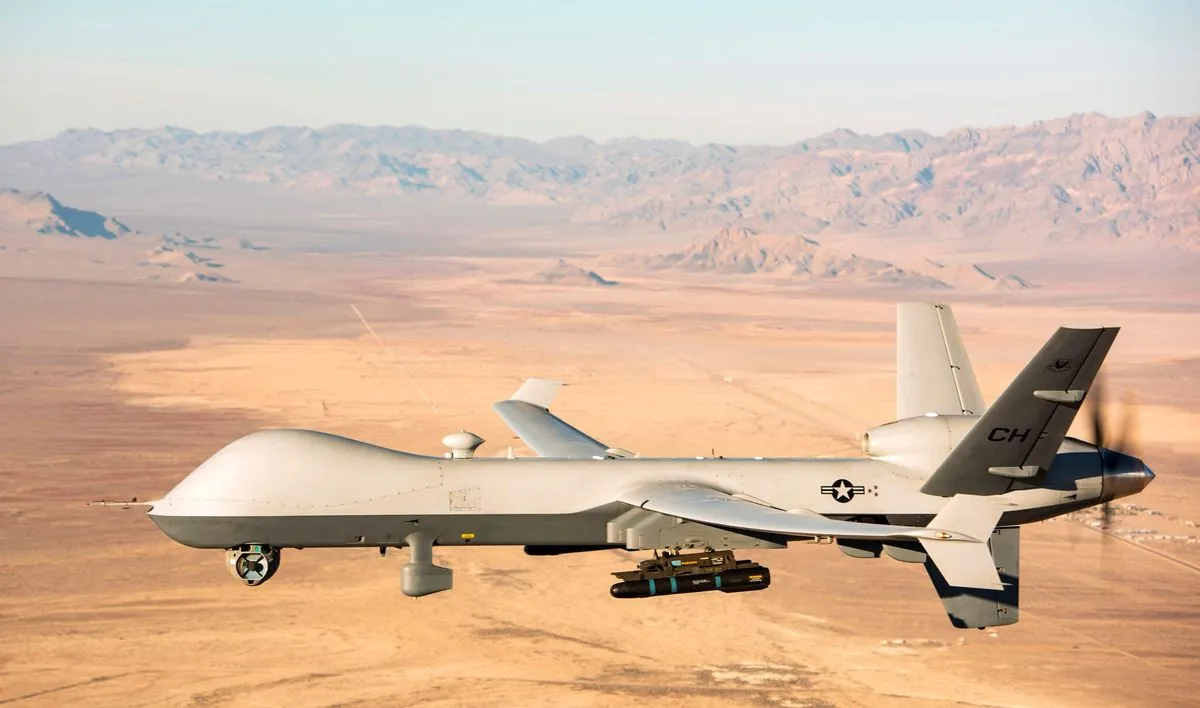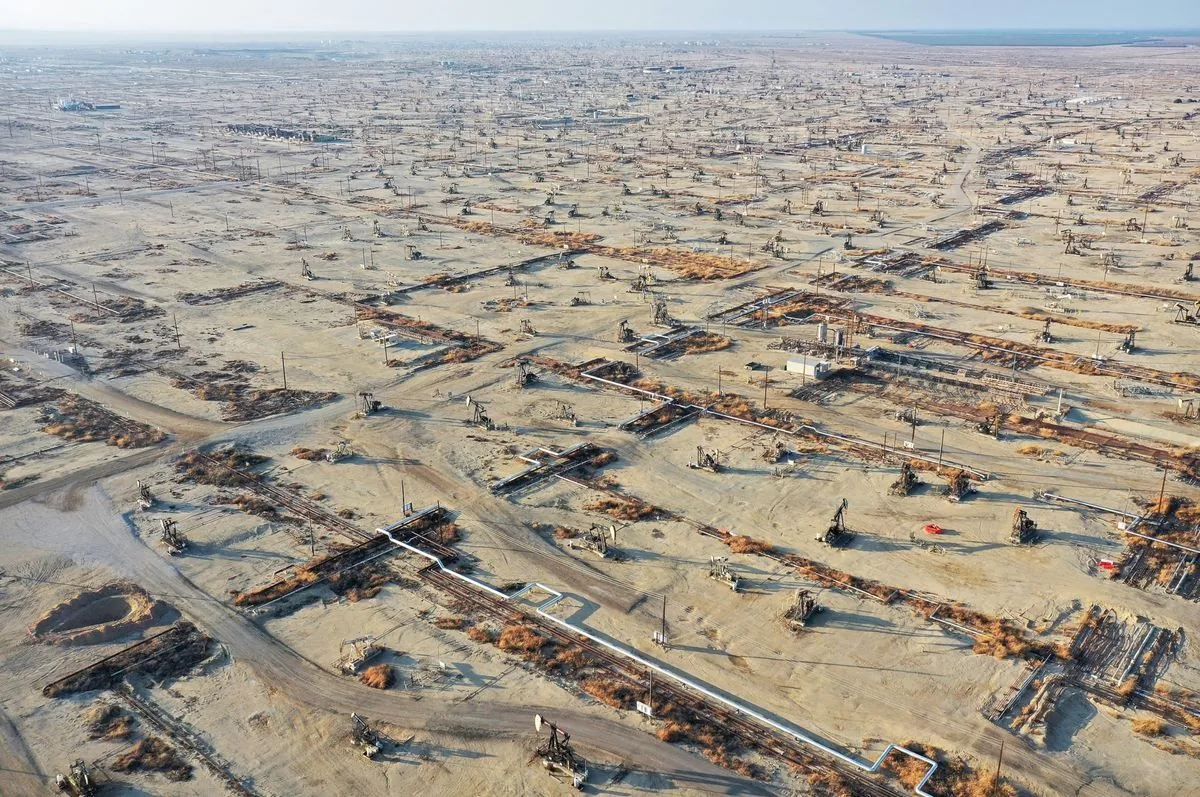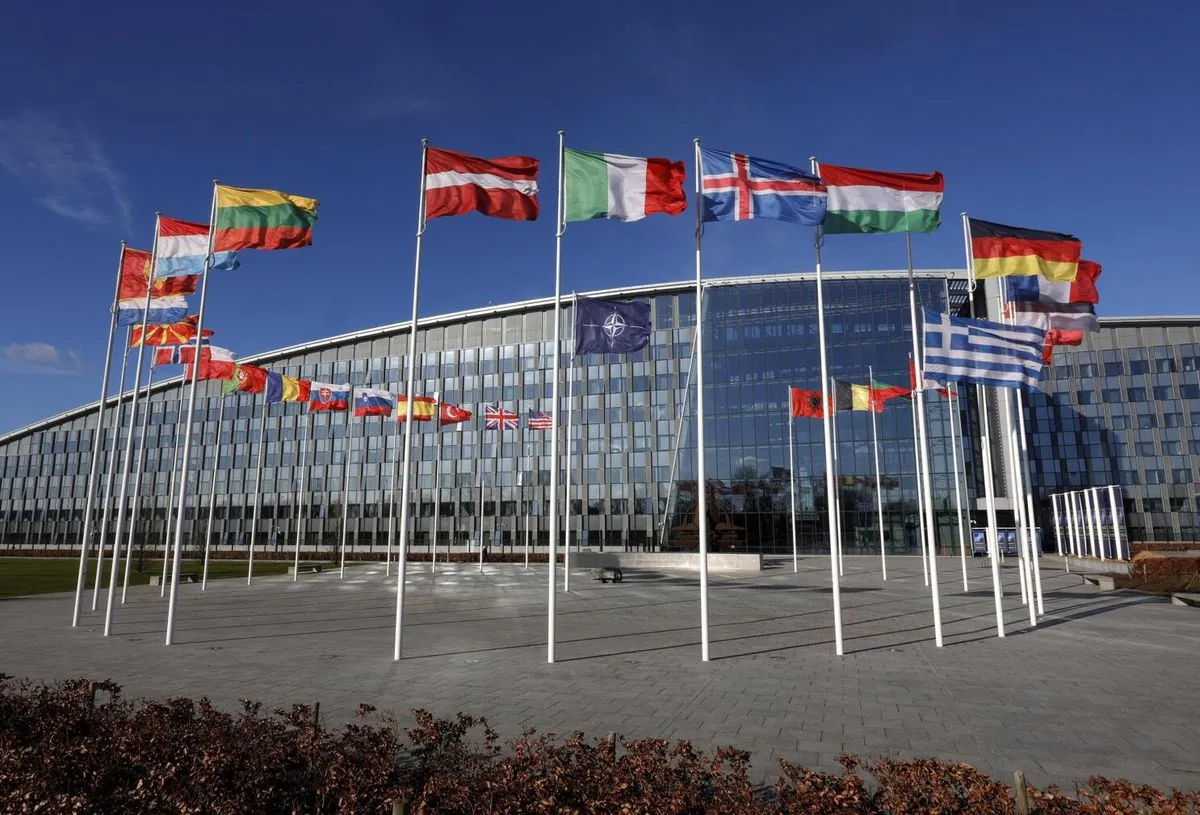Houthis Claim U.S. Drone Downing, Escalating Tensions in Yemen Conflict
Yemeni rebels report shooting down a U.S. MQ-9 drone, prompting retaliatory airstrikes. The incident highlights ongoing tensions in the region and the impact on international maritime trade.

In a recent development in the ongoing Yemen conflict, Houthi rebels have claimed to have shot down a U.S.-made MQ-9 Reaper drone over Yemen's Marib province. This incident, reported on September 8, 2024, marks another potential loss of the sophisticated surveillance aircraft in the region.
The United States reportedly responded with airstrikes over Houthi-controlled territory, although official confirmation from the U.S. military is pending. This exchange underscores the escalating tensions in the area, which have been particularly heightened since the outbreak of the Israel-Hamas conflict in October 2023.

Brigadier General Yahya Saree, the Houthi military spokesperson, announced the downing of the drone in a prerecorded video message. While no visual evidence was immediately provided, such material has often appeared in propaganda footage days after similar claims in the past.
The MQ-9 Reaper, a formidable unmanned aerial vehicle, has been a target of Houthi forces since they took control of Sanaa, Yemen's capital, in 2014. These drones, valued at approximately $30 million each, can operate at altitudes up to 50,000 feet (15,240 meters) and remain airborne for up to 24 hours. Their capabilities include carrying various sensors, such as infrared cameras and synthetic aperture radar, making them valuable assets for surveillance operations.
The conflict in Yemen has drawn in regional powers, evolving into a complex proxy war. The Saudi-led coalition, supporting the internationally recognized government, has been battling the Houthi rebels since 2015. This prolonged conflict has resulted in one of the world's worst humanitarian crises, according to the United Nations.
"The Houthis continue to perform their jihadist duties in victory for the oppressed Palestinian people and in defense of dear Yemen."
The Houthi rebels have intensified their maritime operations in the Red Sea, a critical shipping route connecting the Mediterranean Sea to the Indian Ocean via the Suez Canal. Since October 2023, they have targeted over 80 merchant vessels with missiles and drones, resulting in four sailor fatalities and the sinking of two ships.
These attacks have significant implications for global trade, as the Suez Canal handles approximately 12% of international commerce. The Bab el-Mandeb Strait, located at the southern end of the Red Sea, serves as a crucial chokepoint for maritime trade, further emphasizing the strategic importance of this waterway.
A recent incident involving the Greek-flagged oil tanker Sounion highlights the ongoing maritime threats in the region. Salvage efforts to tow the burning vessel were abandoned in early September 2024, leaving its cargo of 1 million barrels of oil at risk of spilling. This situation poses a potential threat to the delicate coral reef ecosystems in the Red Sea.
As the conflict continues to evolve, the international community remains concerned about its impact on regional stability and global trade. The situation in Yemen serves as a stark reminder of the complex geopolitical challenges facing the Middle East and their far-reaching consequences.


































